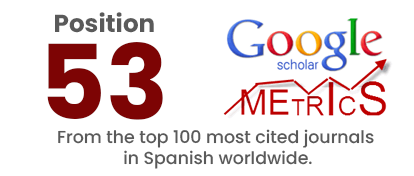Ethics and good practices
Revista San Gregorio adheres to the standards established by various international guidelines and frameworks, including COPE, WAME and Elsevier Publishing Ethics. It also complies with the Higher Education regulations in Ecuador, including those of CACES and the Code of Ethics for Research and Learning of the Universidad San Gregorio de Portoviejo.
Revista San Gregorio l upholds a strict policy against academic inbreeding, ensuring that at least 60% of the articles accepted per issue are authored by researchers not affiliated with the publishing institution or the Universidad San Gregorio de Portoviejo.
The journal also rejects predatory publishing practices, particularly with regard to charging authors for publication.
The opinions, interpretations, reflections, and information presented in each article are the sole responsibility of the authors. The Editorial and Scientific Committees of Revista San Gregorio are not responsible for the credibility or authenticity of published works. Upon submission, the author affirms that all content is original and that appropriate permissions for reproduction have been obtained. Authors must submit a certificate of originality signed by the corresponding author to: revista@sangregorio.edu.ec.
The Editorial Committee reserves the right to verify sources and adapt visual materials to the editorial requirements of the journal. All articles undergo peer review. Authors are solely responsible for the content submitted for evaluation.
Authorship and contributions
Only individuals who have made significant contributions to the research are considered authors. All contributors must be named, with their roles and level of responsibility clearly indicated (Contributor Roles Taxonomy). Students who participated in the research and preparation of the work must be acknowledged as co-authors. A maximum of five authors per paper is allowed.
Unethical practices, such as presenting ideas or data as one's own when the individual did not participate in their collection, are strictly prohibited and must be properly cited.
Any change in authorship must be communicated and justified in writing. Submission implies that all listed authors are aware of and agree with the content and submission to Revista San Gregorio.
Conflicts of interest
All authors, reviewers, and editorial board members must disclose any financial, institutional, or personal conflicts of interest that may influence the outcomes or interpretation of their work. This information will be reviewed by the editorial team and published if relevant.
Data sharing and reproducibility
Revista San Gregorio considers the responsible use and transparent sharing of research data as pillars of scientific integrity.
Authors must ensure that data used in their research are collected, analyzed, and reported honestly, accurately, and in accordance with best scientific practices. Manipulation, omission, or fabrication of data constitutes a serious ethical violation.
Whenever possible, authors are encouraged to share datasets, instruments, and materials, always respecting participant confidentiality and intellectual property rights. Authors must commit to maintaining data accessibility for a reasonable period after publication and to respond ethically and diligently to validation or clarification requests.
Regarding post-publication dissemination, authors may deposit the final version of the article (editorial PDF) in repositories, provided the original source in San Gregorio Journal is clearly cited, including the DOI and/or direct link, and in accordance with the terms of the Creative Commons license.
Ethical oversight
All studies involving human or animal subjects must have received approval from a recognized ethics committee, which must be declared in the manuscript. Authors are expected to comply with international standards in ethical research and to obtain informed consent when applicable.
Post-publication discussion and corrections
As part of its commitment to academic integrity, Revista San Gregorio recognizes that scientific knowledge is subject to ongoing review, even after publication. Formal, ethically responsible mechanisms are in place to correct, comment on, or retract articles when warranted.
Types of post-publication actions
a) Corrections (Errata or corrigenda): Issued when honest or minor errors (in authorship, figures, data, or references) are identified that do not affect the main conclusions of the article.
b) Editorial notes or clarifications: Published when additional context, methodological warnings, or details need to be provided that were insufficiently explained in the original publication.
c) Retractions: Issued in cases of confirmed misconduct (plagiarism, data fabrication, significant manipulation) or serious errors compromising the validity of the findings. Retractions will be clearly labeled and remain publicly accessible with an explanation.
d) Academic comments and replies: The journal allows and encourages letters to the editor, critical comments, or scholarly responses that respectfully question or expand upon previously published articles. These must meet standards of academic rigor and will be reviewed by the editorial team or external peers.
Ethical procedure
Any request for correction or retraction must be submitted in writing, signed by the authors or by a third party with substantial evidence.
The Editorial Committee will evaluate the case following COPE guidelines and may consult reviewers, external experts, or the involved institutions.
The final decision will be communicated to all parties involved, upholding due process, confidentiality, and the presumption of good faith.
The journal reserves the right to issue corrections or retractions without author consent if ethical responsibility requires it.
Identification and handling of research misconduct
Research misconduct refers to any act that violates fundamental ethical and scientific principles. Anyone (reader, reviewer, author, editor, or institution) may report suspected misconduct via confidential email to revista@sangregorio.edu.ec.
Procedure stages:
a) Receipt and preliminary review: The Editorial Committee conducts an initial assessment to determine whether a formal investigation is warranted. If insufficient basis is found, the report is archived with record.
b) Notification to authors: If the case proceeds, the corresponding author is contacted and given a reasonable period (typically 10 business days) to respond in writing.
c) Internal investigation: The Editorial Committee may seek review from external experts or the author’s affiliated institution. Editorial processes may be suspended (if unpublished), or an Expression of Concern may be issued (if published).
d) Editorial decision: Depending on findings, the journal may:
-Reject the manuscript.
-Request major corrections.
-Retract the article (if published), with a public statement.
-Notify the affiliated institution, funding agency, or ethics authority.

















